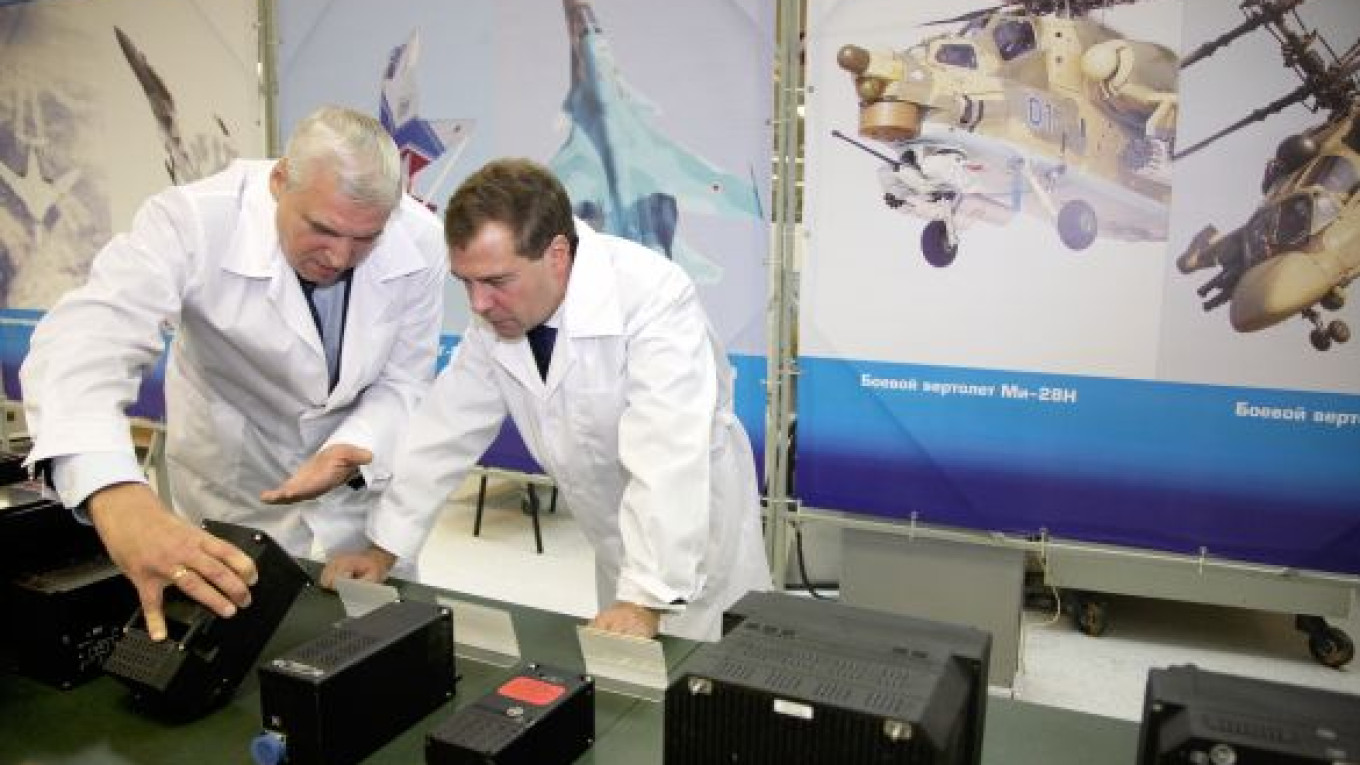President Dmitry Medvedev said Wednesday that he wants the Defense Ministry to create a unified research entity similar to one formed by the U.S. Defense Department in response to the Soviet Union's launch of Sputnik.
“The country lacks an efficient structure that would deal with demand for so-called breakthrough research and development in the interests of defense and security,” Medvedev said at a session of the Presidential Commission for Modernization and Technological Development of Russia's Economy.
First Deputy Prime Minister Sergei Ivanov told reporters after the session that the first proposals on a new agency would be drawn up in the next few months.
"The president has given the task to find appropriate mechanisms so that this money goes not only to research by the Russian Academy of Sciences but to new players as well,” he said.
“There are new players on the market, including leading Russian institutes, research and development centers, the Kurchatov Institute, a minimum of three state corporations — Russian Technologies, Rosatom and Rusnano,” he said.
The U.S. Defense Department created the Defense Advanced Research Projects Agency, known as DARPA, as a research and development office in 1958. It has pioneered many fundamental technologies, including co-founding the Internet.
Analysts said, however, that breakthrough defense research, which implies the use of new technologies, is a goal unattainable for Russian state corporations, defense holdings and individual researchers working separately and without organized state support. A Russian DARPA would unite all these participants under one roof and allow the government to focus on promising projects.
Neither the president nor Ivanov specified where the money for the new agency could come from. Ivanov, however, said in August that the state was planning to spend up to 22.5 trillion rubles ($725 billion) on its arms program by 2020.
Analysts said the money would have to come from the state budget and was unlikely to involve foreign investors.
“The key preconditions for the project's success are financial support, the freedom to create, and infrastructure,” said Igor Korotchenko, director of the Moscow-based Center for Analysis of World Arms Trade.
While Skolkovo, Russia's future innovation and modernization hub near Moscow, could serve as a potential base for the agency, this is unlikely to happen because its projects will be top-secret and the agency will most likely require construction of a production facility for prototypes, Korotchenko said. ?
Opening the agency will probably take from six months to a year, given Russian red tape, he said.
“America's experience with DARPA is great, and using it is a good idea,” Korotchenko said.
Medvedev did not hide his disappointment with the current status of the country's defense industry.
“The situation is quite bad, quite complicated,” Medvedev said. “In a whole range of areas, the Russian defense industry is not capable of reacting to additional orders or increased financing to make high-tech products in sufficient numbers."
A Message from The Moscow Times:
Dear readers,
We are facing unprecedented challenges. Russia's Prosecutor General's Office has designated The Moscow Times as an "undesirable" organization, criminalizing our work and putting our staff at risk of prosecution. This follows our earlier unjust labeling as a "foreign agent."
These actions are direct attempts to silence independent journalism in Russia. The authorities claim our work "discredits the decisions of the Russian leadership." We see things differently: we strive to provide accurate, unbiased reporting on Russia.
We, the journalists of The Moscow Times, refuse to be silenced. But to continue our work, we need your help.
Your support, no matter how small, makes a world of difference. If you can, please support us monthly starting from just $2. It's quick to set up, and every contribution makes a significant impact.
By supporting The Moscow Times, you're defending open, independent journalism in the face of repression. Thank you for standing with us.
Remind me later.


